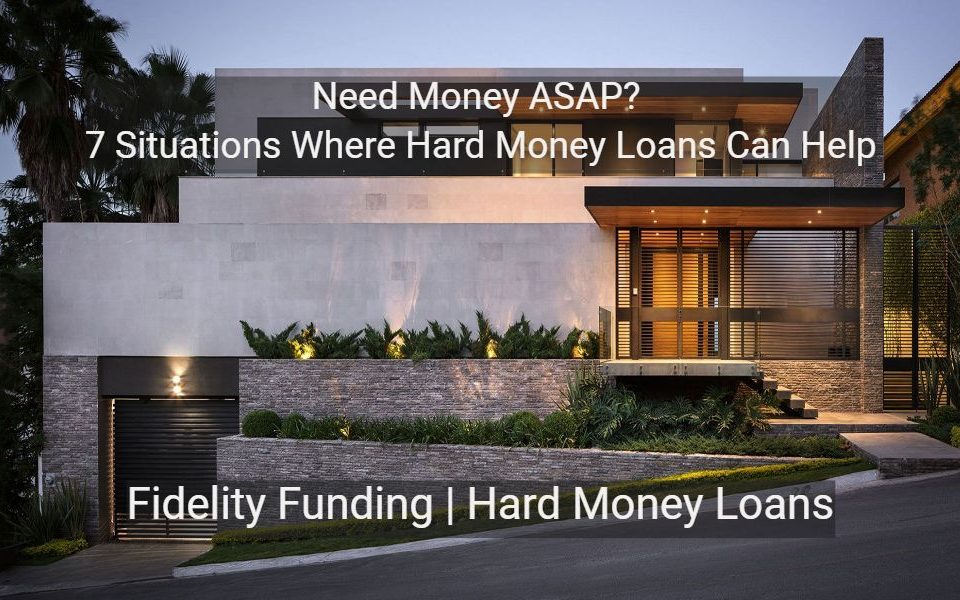Do Hard Money Lenders Check Credit? 5 FAQs About Getting Approved for a Loan

4 Reasons to Talk to the Best Hard Money Lenders in California
April 28, 2020
Need Money ASAP? 7 Situations Where Hard Money Loans Can Help Can Help
April 30, 2020- Alternative Income Loans California
- Bank Statement Loans California
- Best Hard Money Rates California
- Foreclosure Bailout California
- Hard Money 2nd Mortgage California
- Hard Money business Loans California
- Hard Money Definition California
- Hard Money Foreclosure Loans California
- Hard Money Lenders California
- Hard Money Lenders Near Me
- Hard Money Lending California
- Hard Money Loan California
- Hard Money Loan Rates California
- Hard Money Loans For Bad Credit California
- Hard Money Loans for Real Estate California
- Hard Money Loans Los Angeles
- Hard Money Personal Loans California
- Hard Money Refinancing California
- No Doc loans California
- No Income Loans California
- Owner Occupied Hard Money Loan California
- State Income Loans California

When you are looking for a short-term investment loan that can be secured by a property, Hard Money Lenders offer an attractive option. They can have a quick turnaround time from application to funding and are useful for a wide range of investment scenarios. Keep reading to learn more about what Hard Money Loans are, when it makes sense to seek one and how to go about applying.
What Is a Hard Money Loan?
A hard money loan is a type of loan that is usually secured by real property. You can often get funding from Hard Money Lenders quickly, sometimes in just days. This incredibly quick turnaround time is a huge advantage over bank funding, especially in cash-only or short sale situations.
Hard Money Loans often have rates that are slightly higher than conventional loans, and there may be fees that you are unfamiliar with. Lending restriction may be different, too. For example, documentation requirements may be more lenient, while the loan to value ratios may be stricter.
This isn’t to say that Hard Money Loans are necessarily more expensive or a bad idea in the long term. You should just be aware that the features and processes are different than those associated with obtaining a conventional mortgage. Hard Money Loans can be a great way to make a property purchase in certain situations, despite the many myths around them.
Will Hard Money Lenders Check Credit? 5 FAQ About Getting Approved for a Loan
If you have considered applying for a hard money loan, you may be wondering what the application process involves. Contrary to popular belief, Hard Money Loans are not a guaranteed prospect. You will need to qualify to get funding. Here are five common questions about applying and getting approved for a hard money loan.
1. What Documentation Is Required?
There is a widespread misconception that hard money and no-doc loans are the same things. They are not. While they are both considered non-conventional loan options, there are important differences between them.
Hard Money Loans are property loans that are funded through private investment. They offer a short turnaround time from application to funding and are a popular option for short term funding needs. However, you will need to provide documentation of your income, employment history, and creditworthiness when you apply. Most Hard Money Lenders will also want to see appraisals or other documentation for the property in question.
This is very different from a no- or low-doc loan, that is made with little supporting documentation. Relaxed requirements make these popular options for self-employed workers or those with a spotty credit or job history.
2. Are There Strict Rules with Hard Money Loans?
The truth is that no matter where you borrow money from, there will be some rules, regulations, and restrictions. These help keep the processes of applying, lending, and repayment ordered and moving along smoothly. Hard money does not have any more rules than any other type of conventional loan, and, in many cases, the rules are slightly more relaxed.
When you take out a hard money loan, you are working with private investors. This gives you an opportunity to discuss what goals you are looking to achieve and see if a set of rules and arrangements can be worked out to benefit everyone involved.
Many lenders will be receptive to policies that will help you repay your loan, so slightly nontraditional rules may be more attractive to them than they would to a bank. Keep things sensible, though, and don’t expect a lender to agree to ridiculous or unprofitable terms. They are businesspeople, after all, and they are lending money as an investment they want to see a healthy return on.
3. What Loan to Ratio Loans Get Approved?
Hard Money Loans are not a good vehicle to fund the entire purchase of a property. That gives the lender little reason to invest since there is no security cushion. So, if you are planning to use hard money to fund the entire purchase and renovation of an investment property, you should probably rethink your strategy.
Funding 100% of purchase and renovation would mean your lender is taking on more risk for your project. Many private lenders (hard money or otherwise) are going to require a down payment before discussing terms.
Most Hard Money Lenders may want to see a loan to value ratio at about 70% or less. You may find one or two willing to let that go as high as 80%, or perhaps even a touch higher if your creditworthiness is very strong.
Even though they want to see some equity, many lenders are willing to fund construction or remodeling expenses on investment properties if you do have a down payment in hand.
4. Is There Anything Else Lenders Will Want To See?
Lenders are going to want to verify your ability to pay back their investment. After all, they are not in the real estate business directly, and they would rather not take possession of the property securing your loan. As a result, they are going to want to see a strong credit score and history.
They are also going to want to know what your exit strategy for the investment is. If you are wondering what that is, you need to do some more research before you seek funding. An exit strategy is basically how you plan to repay the money you are borrowing. Some options investors may consider sound are flipping a property by making improvements and selling it or turning it into an income-producing rental property.
You’ll also need to provide values for the property as it is, and estimated values for once repairs and renovations are completed. You should know the estimated costs for any work you are planning to have done or will be performing yourself. If you are planning to invest in rental properties, you should be able to provide an estimate of rents for similar units in the area.
5. When Does It Make Sense to Seek This Type of Funding?
Hard Money Loans can make sense in a variety of situations that don’t lend themselves to traditional bank financing. Some of the most common ones include investment properties that are going to be resold quickly or as short-term bridge loans for construction and renovations.
Is Hard Money Right for You?
If you want to learn more about financing options, including Hard Money Loans, contact Fidelity Funding. They offer simplified application processes and a fast turnaround to meet your needs.
Fidelity Funding Helps You With Hard Money Loans
Fidelity Funding | Hard Money Loans
Email: info@fidelityfundingcorp.com
Phone: (877) 300-3007
Website: https://www.fidelityfundingcorp.com




